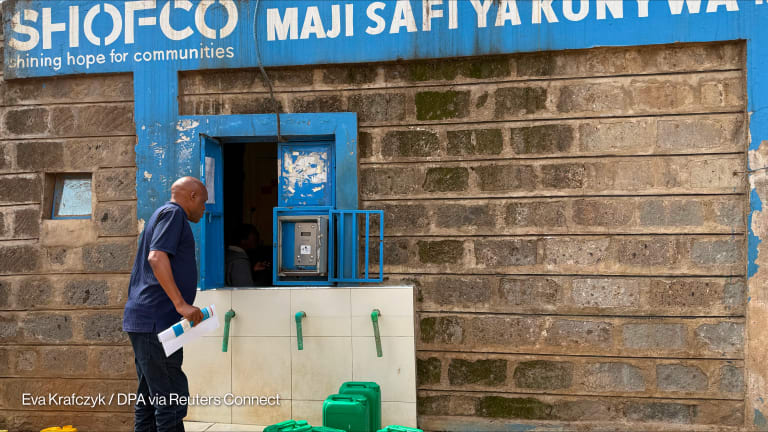Travel restrictions, funding gaps a bigger problem than PPE, humanitarian leaders say

BURLINGTON, Vt. — Domestic travel restrictions and a general lack of coordinated funding — not shortages of personal protective equipment — are the biggest constraints to accessing the world’s most vulnerable communities in the midst of the coronavirus pandemic, humanitarian leaders said Monday.
“Obviously, we’ve moved to remote management in a number of areas, but it’s actually domestic travel restrictions that are preventing the movement of local staff that is the greatest impediment at the moment,” said David Miliband, president and CEO at the International Rescue Committee, in a Council on Foreign Relations conference call Monday.
Miliband said his organization’s responders would actually like to deploy more of the protective equipment they have on hand but are prevented from doing so by the combination of travel restrictions and the international community’s failure to stand up a coordinated global response to the health crisis.
“We’re obviously concerned about the PPE-supply issue, but one of the biggest problems is that because the funding for new health facilities, new isolation centers hasn’t come from the traditional donors, we actually want to be using out more PPE kit than we currently are,” he said.
“The main issue at the moment is about a lack of mobilization to configure an effective response,” Miliband said, adding that “the funding of the front line has come last in this crisis.”
He noted that the first United Nations funding appeal called for $2 billion, of which only $100 million was intended for front-line NGO workers.
“When [this issue is] framed as a local versus national versus international, the people who lose are those in the greatest need.”
— David Miliband, president and CEO, International Rescue Committee“The focus of activity should be on driving up preventative and response activity, and at the moment, I don’t see the kit issue as being the major constraint,” he said.
Michelle Nunn, president and CEO at CARE USA, agreed with that assessment and added that, in many cases, PPE is less of an issue than “the more basic resourcing of the community ground troops” in places where potential responders lack access to resources such as soap, clean water, and other forms of sanitation.
Lurching into localism
The aid organization leaders also rejected the idea that donors face a choice between supporting local response efforts and funding large international organizations. At the World Humanitarian Summit in 2016, governments, NGOs, and other humanitarian representatives agreed to a goal of directing 25% of aid to local and national responders by 2020.
“We have come really nowhere near that target,” said Eric Schwartz, president at Refugees International, adding that if governments and NGOs had moved more quickly in the direction of localization, “we would be in a stronger position today.”
Schwartz and others noted that one of the biggest impediments to localization has been the stringent compliance and reporting requirements that governments have imposed on organizations receiving their funding.
“I think that framing it as a dichotomy is a real mistake, because the truth is that if you localize without national, regional, international support, then you’re expecting people to sink or swim. When you pile onto that compliance requirements from international donors, then local groups are going to suffer and, more likely, sink,” Miliband said.
He added that humanitarian advocates and leaders should insist that the role of international organizations is to support local action but also to recognize that global expertise, standards, evidence, and comparison are valuable contributions.
“There is a danger of lurching into a crude embrace of quote-unquote ‘localism’ that is not borne out by the facts, and I feel quite strongly that many of those who are most insistent about localization are also most insistent about compliance standards that local community groups cannot be expected to meet,” he said.
“I think we’ve got a real responsibility to speak the truth about this issue, which is that when it’s framed as a local versus national versus international, the people who lose are those in the greatest need,” Miliband added.
A faster shift toward local and national humanitarian leadership could be one consequence of the current pandemic, the humanitarian leaders predicted.
“I do think that this COVID-19 response will propel localization,” Nunn said, adding that “those who are neighbors are going to be the ones who can most help us ... and most quickly.”
“We’re in a situation now where we will be forced — in a good way — to make virtue out of necessity,” Schwartz said.
Visit our dedicated COVID-19 page for news, job opportunities, and funding insights.

Search for articles
Most Read
- 1
- 2
- 3
- 4
- 5








